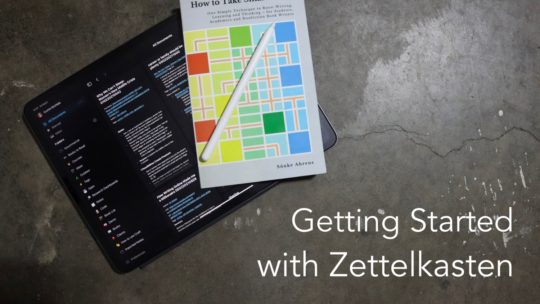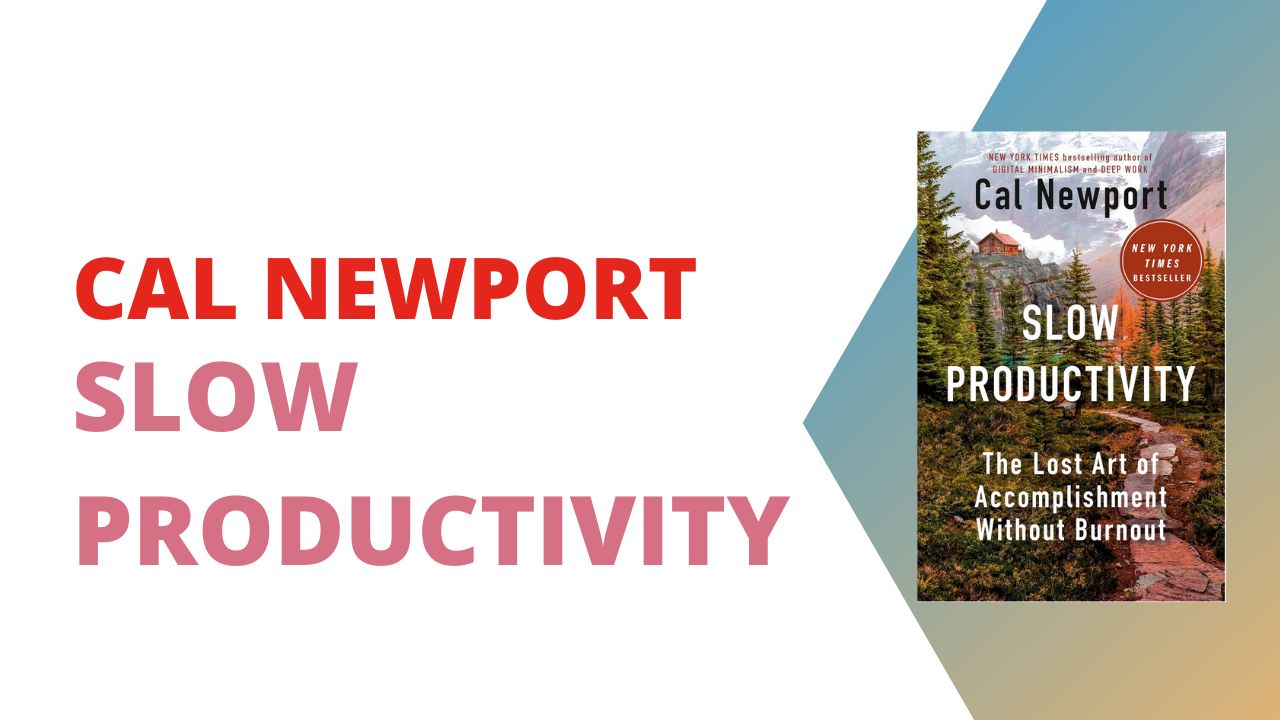Slow Productivity is Cal Newport’s 5th entry into the adult productivity1 space, all of which I’ve read. My first entry into Newport was Deep Work which I wrote two extensive posts about. At the time it was saying all the things I was thinking but had no words for. But since then I’m not sure that Newport has moved on that much from the core premise of the book.
Slow Productivity has 3 base tenants2. First, do fewer things. Second, work at a natural pace. Third, obsess over the quality of the work you do. He contrasts these three ideas with the thought that we currently have a faulty definition of productivity3, consisting of doing more things faster and using more time to do work.
Newport also introduces his idea of pseudo-productivity4, which is define as doing visible action (chats, emails, butt in seat time) as a proxy for productive effort. In Newport’s view it’s hard to measure knowledge work so instead of doing a good job at defining success in a knowledge work environment we default to evaluating the worth of an individual in an organization by these visible but not that valuable efforts.
Do Fewer Things
Strive to reduce your obligations to the point where you can easily imagine accomplishing them with time to spare. Leverage this reduced load to more fully embrace and advance the small number of projects that matter most. Pg 53
Newport’s first step in embracing slow productivity is to do fewer things and he rightly points out that any new project you take on brings with it more work than the deliverable itself represents, it also brings extra administrative overhead by way of communication about the tasks that must be done to accomplish a project5. This highlights the Achilles heel of every productivity book I’ve read, Newport assumes that his readers have autonomy over the projects they take on at work6 and only makes passing reference to any worker that may not have autonomy. He certainly never steps deep into the waters of how economic incentives are set up and how many workers just have to show up and do what they’re told or they’ll be out of a job and then out of a house with nothing to eat.
After his statement about committing to less, he has generic productivity advice about asking your boss to remove things from your list as things are added7 and focusing on one major project per day so you can get deeply involved in it and make good progress on the project.
Work at a Natural Pace
Don’t rush your most important work. Allow it instead to unfold along a sustainable timeline, with variations in intensity, in settings conducive to brilliance. Pg 116
The natural pace that’s recommended would have workers measure their “production” over the time span of months, but better even years or decades8 instead of the daily widget cranking pace that most workers and managers default to. But there is the issue, most bosses and managers at best measure productivity across a time span of a week. Newport never offers advice to combat this tendency either, he simply tells you to measure your productivity over a longer time frame and then I guess your boss will magically fall into line and also measure your productivity over a year or many years instead of defaulting to what you did last month or on the last project.
It does sound idyllic to take the months or years long breaks suggested by Newport so that you can learn more and then combine that new learning with old ideas to revolutionize a field but all his examples had wealth of some fashion so earning income in the moment wasn’t a pressing issue for them. While he does acknowledge this, it’s barely a passing reference9.

Getting Started with Zettelkasten
If you’ve been wondering about what Zettelkasten is and how to start organizing your notes with this excellent system then this course is for you. I’ll walk you through how I use this system to develop my reading research for posts like this one here. You can also become a member to get all my courses.
$99 USD (30-day guarantee)
Sticking with the current buzzwords the author also addresses quiet quitting, but not in the same way I’ve come to understand it. While I’ve continued to understand it as just putting in your 9-5 hours and doing your work with nothing extra outside, Newport says that you still work a bit extra, but maybe you’re not available on weekends to your work and don’t take on that extra project that your boss wants you to do10. It seems that he still advocates for working more than the expected hours, just not quite as many as you would if you weren’t in a phase where you were “slowing down”.
Obsess Over Quality
Obsess over the quality of what you produce, even if this means missing opportunities in the short term. Leverage the value of these results to gain more freedom in your efforts over the long term. Pg 173
Yes his final advice is more or less a shortened version of his main argument in So Good They Can’t Ignore You. Do such good work that you’re recognized at your job and then leverage that work into more choice in the work you do.
Newport’s first example of someone doing this is the music artist Jewel, who by her own admission didn’t need money when she said goodbye to the grind her label wanted for her and struck out on doing her own thing11. His second example, Paul Jarvis, is better in that Jarvis recommends buying less so that you need to earn less and living a small enough life that you can choose to do what you want instead of needing to grub for money all the time.
The rest of his examples about betting on yourself are deeply enmeshed with survivorship bias12 so we’re only seeing the winners that happened to have enough money or some connection that means they could outlast failure and “win”. Sure he does acknowledge that for every John Grisham and Clive Cussler there are many failed authors13 and recommends that you only quit your job and make a full bet on yourself if you’ve seen monetary validation that what you’re doing is working14. These are throwaway short paragraphs in a vast swamp of telling you to bet on yourself because that’s the way though. It’s not a serious engagement with the fact that most people fail and we never hear about them.
Should You Read Slow Productivity by Cal Newport?
As I read more productivity books I can’t help but see that most of them fall firmly into the agreement that it’s all about your hard work and ignore the systemic issues with our economic system. This is what business and capitalism wants, to make you believe that wherever you are it’s because of your choices and that the system is working fine. If you believe this then you won’t step out and look at proper reforms that will give everyone the opportunity to thrive.
Newport sticks to the script in this regard. It’s mostly about the effort you put in and he barely acknowledges any external factors that could make your success impossible despite your best efforts.
If you’re new to the productivity space then Slow Productivity is a decent read. It covers most of the bases without treading into anything with much depth. It’s not Newport’s best work, but it’s not a terrible book.
